![[Re-release] YA Mysteries image](https://media.zencastr.com/cdn-cgi/image/width=54,quality=85/image-files/61e1c276e3ec42007857cff9/9a6b508f-4420-443c-bb93-77a1e386a301.jpg)
[Re-release] YA Mysteries
This is a re-release of an episode originally published July 5, 2022.
Summer camp.
Boarding school.
A high school classroom.
Classic settings for YA mystery. Brook and Sarah discuss the appeal of these mysteries, even though they are written for younger audiences.
Discussed
Anne of Green Gables (L.M. Montgomery)
Little Women (Louisa May Alcott)
Nancy Drew
Hardy Boys
Enid Blyton
Dear Evan Hanson (YA Musical)
Ace of Spades (Faridah Àbíké-Íyímídé)
PMS Girls (Lisa Alfano)
The Outsiders (S.E. Hinton)
Truly Devious (Maureen Johnson)
Alex Rider Series (Anthony Horowitz)
The Agency Series (Y.S. Lee)
Sweetness at the Bottom of the Pie (Alan Bradley)
Enola Holmes (Nancy Springer)
Veronica Mars
The Shadow Demon Saga (Sarah Cannon)
Scooby Doo
Riverdale
For more information
Website: https://cluedinmystery.com/
Instagram: @cluedinmystery
Contact us: hello@cluedinmystery.com
Music: Signs To Nowhere by Shane Ivers – www.silvermansound.com
![[Re-release] Anthony Berkeley image](https://media.zencastr.com/cdn-cgi/image/width=112,quality=85/image-files/61e1c276e3ec42007857cff9/e7c778ac-a2ba-4809-9a5c-7cd39d167834.jpg)
![[Bonus] Wake Up Dead Man image](https://media.zencastr.com/cdn-cgi/image/width=112,quality=85/image-files/61e1c276e3ec42007857cff9/e276ac32-e664-464f-956c-7699bdb60aa5.jpg)
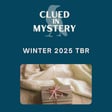
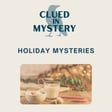
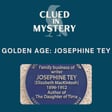
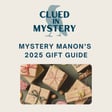
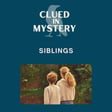

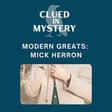
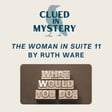
![[Bonus] Read Along: Daughter of Time image](https://media.zencastr.com/cdn-cgi/image/width=112,quality=85/image-files/61e1c276e3ec42007857cff9/b953ad72-c43e-48ca-a18a-b3c216ab90ee.jpg)
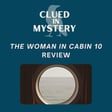
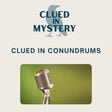
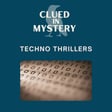
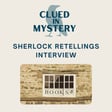
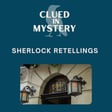
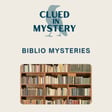
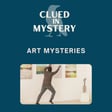
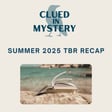
![[Bonus] Thursday Murder Club preview image](https://media.zencastr.com/cdn-cgi/image/width=112,quality=85/image-files/61e1c276e3ec42007857cff9/e51be644-e446-4d32-b89c-12bfc60d30e9.jpg)